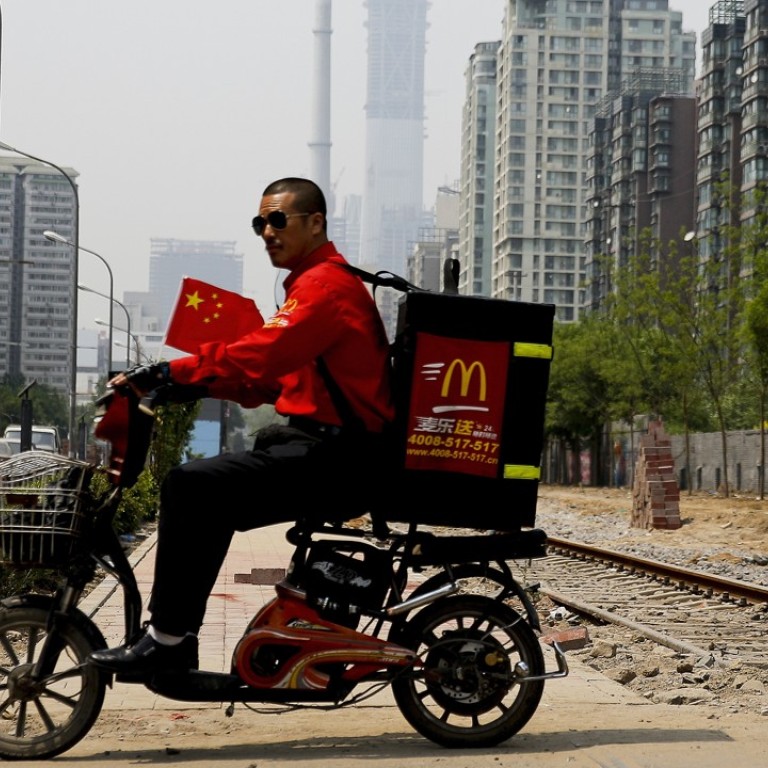
China strategy built on digital marketing and home delivery could drive US growth for McDonald’s
Fast-food chain among businesses that have benefited from growth of mobile internet payments and e-commerce in China
The use of digital marketing, electronic payments and delivery have helped McDonald’s develop a unique growth strategy in China that could serve as a role model for its home market in the United States, said the head of Citic Capital Holdings, the financial services arm of the group that co-owns 52 per cent of the fast-food chain’s China and Hong Kong business.
Zhang Yichen, the Citic Capital chief executive and chairman, told the Asian Financial Forum in Hong Kong on Monday that the use of digital marketing, combined with delivery services, had been an important growth driver for the Chinese market.
Last year, deliveries accounted for a quarter of the sales in tier one cities such as Beijing and Shanghai. Overall in China, sales from delivery grew by 81 per cent last year, said Zhang, adding that these growth rates were on the rise in 2018.
“Our colleagues in the US have mentioned how [digital marketing] is something they could learn from China. What the Chinese government has done is also important, as it has put in place a lot of regulations to facilitate an environment for digital payments to prosper,” he said.
In China, the use of mobile internet payments has been integral to the growth of e-commerce. Dominant mobile payment operators such as Alipay and WeChat Pay have facilitated delivery services in China not only by fast-food chains such as McDonald's, but also increasingly by bricks-and-mortar retailers of fresh produce, such as fruit and vegetable retailers.
Aside from electronic payments, digital marketing has also been instrumental in McDonald’s growth strategy. Zhang said one such example, which has worked well in China, is the use of digital coupons, with which customers can redeem discounted food items by scanning a QR code on their WeChat app, on their mobile phones. Owned by Tencent Holdings, WeChat is a multipurpose mobile social media app and China’s predominate mobile messaging app.
In China, Zhang said expansion into tier three and tier four cities has been a big focus since Citic Capital acquired the business in 2017.
Our colleagues in the US have mentioned how [digital marketing] is something they could learn from China
“When we bought the business one year ago, we had 2,400 stores. Today, these have expanded to 2,600. In some tier three and tier four cities, you still cannot find a McDonald's, which is a place for family unions over the weekend …[rather than just a place for low-cost food],” said Zhang.
The global fast-food giant closed a deal in July 2017 to sell a 52 per cent stake of its China and Hong Kong business to Citic Capital’s private equity arm and Citic, while selling another 28 per cent stake to The Carlyle Group, in a US$2.08 billion cash and share deal.
McDonald’s retains a 20 per cent stake in the China and Hong Kong business. The sale has resulted in a one-off pre-tax gain of US$850 million for the group, McDonald's disclosed in its third quarter results for 2017. The group has yet to report its 2017 annual results.
After the acquisition, the newly formed company running McDonald’s franchise in China has stated that it plans to add 2,000 more restaurants to its current 2,500 by 2022.

